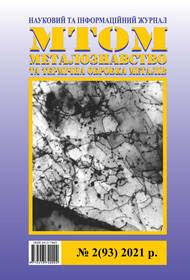Effectiveness of integrated management of secondary resource flows in the construction industry
DOI:
https://doi.org/10.30838/J.PMHTM.2413.270421.15.737Abstract
Problem statement.The solution to the problem of the integrated use of secondary construction resources should be considered in the context of the spread of the world practice of using, processing and reclaiming all valuable waste as secondary resources. This is due to profound changes in the world economy associated with limited natural resources, threats to environmental and social security, an increase in the amount of waste and man-made landfills.The process of managing the flows of secondary resources should be aimed at achieving economic and environmental effects, the definition of which has certain characteristics for various stakeholders in this process: (producers of building materials (waste recyclers), developers (construction companies and organizations), the construction industry (at the regional level, countries).The application of world experience in the use of secondary resources in the construction industry can become the basis for the development of infrastructure for obtaining secondary raw materials from construction waste and attracting them into re-circulation, which will make it possible to more effectively implement the National Waste Management Strategy until 2030, adopted by the Government of Ukraine.The goal of the strategy is to introduce a systematic approach to waste management at the state and regional levels, to reduce the volume of waste generation by increasing the volume of their processing and reuse. Purpose of the article: substantiate the effectiveness of the use of tools for integrated management of secondary resource flows in the construction industry and propose an economic and mathematical model for optimal management of construction waste flows at the level of individual enterprises of the industry in the region. Conclusion. The toolkit for managing waste streams in the construction industry includes information (including statistical, monitoring), analytical, predictive tools for managing the flows of secondary resources. We consider the creation of a unified system of integrated management of the flows of secondary resources (materials) as a condition for decision-making and the effectiveness of the overall management of waste streams in the construction industry, the main goal of which is to achieve a cumulative economic effect from attracting construction waste to a repeated production cycle.The effectiveness of the use of tools for complex management of the flows of secondary resources in the construction industry has been substantiated and a method is proposed for its determination, on the basis of a mathematical model for solving the problem of optimal management of flows of construction waste at the level of enterprises are waste producers, enterprises-processors (producers of building materials from secondary raw materials), the construction industry of the region.
Keywords: building sector; integrated management; secondary resource streams; economic efficiency;
performance criteria; management tools
Downloads
Published
Issue
Section
License
Authors that are published in this journal agree to follow the conditions:
Authors reserve the right to the authorship of his work and cede the right to the journal of first publication of this work on conditions of the license under the Creative Commons Attribution License, which allows others to distribute it freely with the obligatory reference to the author of the original work and the first publication of the work in this journal.

